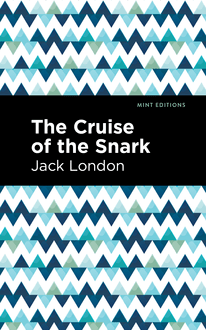-
 Univers
Univers
-
 Ebooks
Ebooks
-
 Livres audio
Livres audio
-
 Presse
Presse
-
 Podcasts
Podcasts
-
 BD
BD
-
 Documents
Documents
-
- Cours
- Révisions
- Ressources pédagogiques
- Sciences de l’éducation
- Manuels scolaires
- Langues
- Travaux de classe
- Annales de BEP
- Etudes supérieures
- Maternelle et primaire
- Fiches de lecture
- Orientation scolaire
- Méthodologie
- Corrigés de devoir
- Annales d’examens et concours
- Annales du bac
- Annales du brevet
- Rapports de stage
La lecture à portée de main
Vous pourrez modifier la taille du texte de cet ouvrage
Découvre YouScribe en t'inscrivant gratuitement
Je m'inscrisDécouvre YouScribe en t'inscrivant gratuitement
Je m'inscrisEn savoir plus
Vous pourrez modifier la taille du texte de cet ouvrage
En savoir plus

Description
Typee (1846) is a work of travel literature by American writer Herman Melville. Its publication was an instant success in both London and New York, earning Melville a reputation as one of America’s most promising young authors. Although he claimed to base the entirety of the book on his own experiences as a sailor, it is now believed that the book incorporates aspects of Melville’s life with scenes inspired by imagination and other works of travel literature. Despite the success of Typee and subsequent works, Melville’s reputation foundered until it was reappraised in the 1920s, when scholars recognized his status as one of nineteenth century America’s finest writers.
Tired of his life as a sailor, and unwilling to put up with the grueling labor and general cruelty faced by the lowest on board, Melville decides to abandon ship at the island of Nukuheva. Alongside his friend and shipmate Toby, he seizes his opportunity while on shore to escape from the rest of the men in secret. After making their way inland through Nukuheva’s densely forested mountains, the pair’s only hope for survival depends on the kindness and generosity of the island’s native people. After a long and perilous journey, they discover the hidden valley of Typee, whose people welcome the castaways into their midst. Typee is a story of four months spent on a secluded island with a people whose lives seem entirely untouched by Western culture. Its popular success as a work of travel literature enabled Melville to launch a career as a professional writer and established his reputation as a skillful chronicler of adventure.
With a beautifully designed cover and professionally typeset manuscript, this edition of Herman Melville’s Typee is a classic of American literature reimagined for modern readers.
Sujets
Informations
| Publié par | Mint Editions |
| Date de parution | 12 janvier 2021 |
| Nombre de lectures | 0 |
| EAN13 | 9781513275048 |
| Langue | English |
| Poids de l'ouvrage | 2 Mo |
Informations légales : prix de location à la page 0,0500€. Cette information est donnée uniquement à titre indicatif conformément à la législation en vigueur.
Extrait
Typee
Herman Melville
Typee was first published in 1846.
This edition published by Mint Editions 2021.
ISBN 9781513270043 | E-ISBN 9781513275048
Published by Mint Editions ®
minteditionbooks.com
Publishing Director: Jennifer Newens
Design & Production: Rachel Lopez Metzger
Typesetting: Westchester Publishing Services
C ONTENTS I. A L AND -S ICK S HIP The Sea—Longings for Shore—A Land-Sick Ship—Destination Of the Voyagers II. T O THE M ARQUESAS Passage from The Cruising Ground to the Marquesas—Sleepy Times Aboard Ship—South Sea Scenery—Land Ho!—the French Squadron Discovered at Anchor in the Bay Of Nukuheva—Strange Pilot—Escort of Canoes—A Flotilla Of Cocoa-Nuts—Swimming Visitors—The Dolly Boarded By Them—State of Affairs That Ensue. III. A FFAIRS A BOARD State of Affairs Aboard the Ship—Contents of Her Larder—Length of South Seamen’s Voyages—Account Of A Flying Whale-Man—Determination to Leave the Vessel—The Bay of Nukuheva—The Typees. IV. L AST N IGHT A BOARD Thoughts Previous to Attempting an Escape—Toby, A Fellow-Sailor, Agrees to Share the Adventure—Last Night Aboard the Ship. V. T HE E SCAPE A Specimen of Nautical Oratory—Criticisms Of the Sailors—The Starboard Watch Are Given A Holiday—The Escape to the Mountains. VI. D ISAPPOINTMENT The Other Side of the Mountain—Disappointment—Inventory Of Articles Brought from the Ship—Division of the Stock Of Bread—Appearance of the Interior of the Island—A Discovery—A Ravine and Waterfalls—A Sleepless Night—Further Discoveries—My Illness—A Marquesan Landscape. VII. A W ILD -G OOSE C HASE The Important Question, Typee Or Happar?—A Wild-Goose Chase—My Sufferings—Disheartening Situation—A Night In the Ravine—Morning Meal—Happy Idea of Toby—Journey Towards the Valley. VIII. I NTO THE V ALLEY Perilous Passage of the Ravine—Descent into the Valley. IX. C AUTIOUS A DVANCE The Head of the Valley—Cautious Advance—A Path—Fruit—Discovery of Two of The Natives—Their Singular Conduct—Approach Towards the Inhabited Parts Of the Vale—Sensation Produced by Our Appearance—Reception At the House of One of the Natives. X. M ORNING V ISITORS Midnight Reflections—Morning Visitors—A Warrior In Costume—A Savage Æsculapius—Practice of the Healing Art—Body-Servant—A Dwelling-House of the Valley Described—Portraits of Its Inmates. XI. A DVENTURE IN THE D ARK Officiousness of Kory-Kory—His Devotion—A Bath In the Stream—Want of Refinement of the Typee Damsels—Stroll With Mehevi—A Typee Highway—The Taboo Groves—The Hoolah Hoolah Ground—The Ti—Timeworn Savages—Hospitality Of Mehevi—Midnight Musings—Adventure In the Dark—Distinguished Honours Paid to the Visitors—Strange Procession, and Return to the House of Marheyo. XII. A DVENTURE OF T OBY Attempt to Procure Relief from Nukuheva—Perilous Adventure of Toby in the Happar Mountains—Eloquence Of Kory-Kory. XIII. A G REAT E VENT A Great Event Happens in the Valley—The Island Telegraph—Something Befalls Toby—Fayaway Displays A Tender Heart—Melancholy Reflections—Mysterious Conduct Of the Islanders—Devotion of Kory-Kory—A Rural Couch—A Luxury—Kory-Kory Strikes A Light À La Typee. XIV. K INDNESS OF THE I SLANDERS Kindness of Marheyo and the Rest of the Islanders—A Full Description of the Bread-Fruit Tree—Different Modes Of Preparing the Fruit. XV. M ELANCHOLY C ONDITION Melancholy Condition—Occurrence at the Ti—anecdote Of Marheyo—Shaving the Head of a Warrior. XVI. I MPROVEMENT Improvement in Health and Spirits—Felicity Of the Typees—A Skirmish in the Mountain with the Warriors Of Happar. XVII. A S TRANGER A RRIVES Swimming in Company with the Girls of the Valley—A Canoe—Effects of the Taboo—A Pleasure Excursion On the Pond—Beautiful Freak of Fayaway—Mantua-Making—A Stranger Arrives in the Valley—His Mysterious Conduct—Native Oratory—The Interview—Its Results—Departure of the Stranger. XVIII. B ATTLE OF THE P OP -G UNS Reflection After Marnoo’s Departure—Battle of the Pop-Guns—Strange Conceit of Marheyo—Process of Making Tappa. XIX. D ANCES History of a Day as Usually Spent in the Typee Valley—Dances of the Marquesan Girls. XX. M ONUMENTS The Spring of Arva Wai—Remarkable Monumental Remains—Some Ideas with Regard to the History of the Pi-Pis Found in the Valley. XXI. A F ESTIVAL Preparations for a Grand Festival in the Valley—Strange Doings in the Taboo Groves—Monument of Calabashes—Gala Costume of the Typee Damsels—Departure for the Festival. XXII. T HE F EAST OF C ALABASHES The Feast of Calabashes. XXIII. R ELIGION OF THE T YPEES Ideas Suggested by the Feast of Calabashes—Effigy of A Dead Warrior—A Singular Superstition—The Priest Kolory and the God Moa Artua—Amazing Religious Observance—A Dilapidated Shrine—Kory-Kory and the Idol—An Inference. XXIV. B EAUTY OF THE T YPEES General Information Gathered at the Festival—Personal Beauty of the Typees—Their Superiority Over the Inhabitants of the Other Islands—Diversity Of Complexion—A Vegetable Cosmetic and Ointment—Testimony of Voyagers to the Uncommon Beauty of the Marquesans—Few Evidences of Intercourse with Civilized Beings—Dilapidated Musket—Primitive Simplicity Of Government—Regal Dignity of Mehevi. XXV. M ARRIAGE C USTOMS King Mehevi—Conduct of Marheyo and Mehevi in Certain Delicate Matters—Peculiar System of Marriage—Number Of Population—Uniformity—Embalming—Places Of Sepulture—Funeral Obsequies at Nukuheva—Number Of Inhabitants in Typee—Location of the Dwellings—Happiness Enjoyed in the Valley. XXVI. S OCIAL C ONDITIONS The Social Condition and General Character of the Typees. XXVII. F ISHING P ARTIES Fishing Parties—Mode of Distributing the Fish—Midnight Banquet—Timekeeping Tapers—Unceremonious Style of Eating the Fish. XXVIII. N ATURAL H ISTORY Natural History of the Valley—Golden Lizards—Tameness Of the Birds—Mosquitoes—Flies—Dogs—A Solitary Cat—The Climate—The Cocoa-Nut Tree—Singular Modes of Climbing It—An Agile Young Chief—Fearlessness of the Children—Too-Too and the Cocoa-Nut Tree—The Birds of the Valley. XXIX. T ATTOOING A Professor of the Fine Arts—His Persecutions—Something About Tattooing and Tabooing—Two Anecdotes In Illustration of the Latter—A Few Thoughts on the Typee Dialect. XXX. M USIC Strange Custom of the Islanders—Their Chanting, and the Peculiarity of Their Voice—Rapture of the King at First Hearing A Song—A New Dignity Conferred On the Author—Musical Instruments in the Valley—Admiration Of the Savages at Beholding a Pugilistic Performance—Swimming Infant—Beautiful Tresses of the Girls—Ointment for the Hair. XXXI. C ANNIBALISM Apprehensions of Evil—Frightful Discovery—Some Remarks On Cannibalism—Second Battle with the Happars—Savage Spectacle—Mysterious Feast—Subsequent Disclosures. XXXII. A TTEMPT TO E SCAPE The Stranger Again Arrives in the Valley—Singular Interview with Him—Attempt to Escape—Failure—Melancholy Situation—Sympathy of Marheyo. XXXIII. T HE E SCAPE The Escape Sequel A PPENDIX
I
A L AND -S ICK S HIP
T HE S EA —L ONGINGS FOR S HORE —A L AND -S ICK S HIP —D ESTINATION O F THE V OYAGERS .
Six months at sea! Yes, reader, as I live, six months out of sight of land; cruising after the sperm whale beneath the scorching sun of the Line, and tossed on the billows of the wide-rolling Pacific—the sky above, the sea around, and nothing else! Weeks and weeks ago our fresh provisions were all exhausted. There is not a sweet potato left; not a single yam. Those glorious bunches of bananas which once decorated our stern and quarter-deck, have, alas, disappeared! and the delicious oranges which hung suspended from our tops and stays—they, too, are gone! Yes, they are all departed, and there is nothing left us but salt-horse and sea-biscuit.
Oh! for a refreshing glimpse of one blade of grass—for a snuff at the fragrance of a handful of the loamy earth! Is there nothing fresh around us? Is there no green thing to be seen? Yes, the inside of our bulwarks is painted green; but what a vile and sickly hue it is, as if nothing bearing even the semblance of verdure could flourish this weary way from land. Even the bark that once clung to the wood we use for fuel has been gnawed off and devoured by the captain’s pig; and so long ago, too, that the pig himself has in turn been devoured.
There is but one solitary tenant in the chicken-coop, once a gay and dapper young cock, bearing him so bravely among the coy hens. But look at him now; there he stands, moping all the day long on that everlasting one leg of his. He turns with disgust from the mouldy corn before him, and the brackish water in his little trough. He mourns no doubt his lost companions, literally snatched from him one by one, and never seen again. But his days of mourning will be few; for Mungo, our black cook, told me yesterday that the word had at last gone forth, and poor Pedro’s fate was sealed. His attenuated body will be laid out upon the captain’s table next Sunday, and long before night will be buried, with all the usual ceremonies, beneath that worthy individual’s vest. Who would believe that there could be any one so cruel as to long for the decapitation of the luckless Pedro; yet the sailors pray every minute, selfish fellows, that the miserable fowl may be brought to his end. They say the captain will never point the ship for the land so long as he has in anticipation a mess of fresh meat. This unhappy bird can alone furnish it; and when he is once devoured, the captain will come to his senses. I wish thee no harm, Peter; but as thou art doomed, sooner or later, to meet the fate of all thy race; and if putting a period to thy existence is to be the signal for our deliverance, why—truth to speak—I wish thy throat cut this very moment; for, oh! how I wish to see the living earth again! The old ship herself longs to look out upon the land from her hawseholes once more, as Jack Lewis said right the other day when the captain found fault with his steering.
“Why, d’ye see, Captain Vangs,” says bold Jack, “I’m as good a helmsman as ever put ha
-
 Univers
Univers
-
 Ebooks
Ebooks
-
 Livres audio
Livres audio
-
 Presse
Presse
-
 Podcasts
Podcasts
-
 BD
BD
-
 Documents
Documents
-
Jeunesse
-
Littérature
-
Ressources professionnelles
-
Santé et bien-être
-
Savoirs
-
Education
-
Loisirs et hobbies
-
Art, musique et cinéma
-
Actualité et débat de société
-
Jeunesse
-
Littérature
-
Ressources professionnelles
-
Santé et bien-être
-
Savoirs
-
Education
-
Loisirs et hobbies
-
Art, musique et cinéma
-
Actualité et débat de société
-
Actualités
-
Lifestyle
-
Presse jeunesse
-
Presse professionnelle
-
Pratique
-
Presse sportive
-
Presse internationale
-
Culture & Médias
-
Action et Aventures
-
Science-fiction et Fantasy
-
Société
-
Jeunesse
-
Littérature
-
Ressources professionnelles
-
Santé et bien-être
-
Savoirs
-
Education
-
Loisirs et hobbies
-
Art, musique et cinéma
-
Actualité et débat de société
- Cours
- Révisions
- Ressources pédagogiques
- Sciences de l’éducation
- Manuels scolaires
- Langues
- Travaux de classe
- Annales de BEP
- Etudes supérieures
- Maternelle et primaire
- Fiches de lecture
- Orientation scolaire
- Méthodologie
- Corrigés de devoir
- Annales d’examens et concours
- Annales du bac
- Annales du brevet
- Rapports de stage











